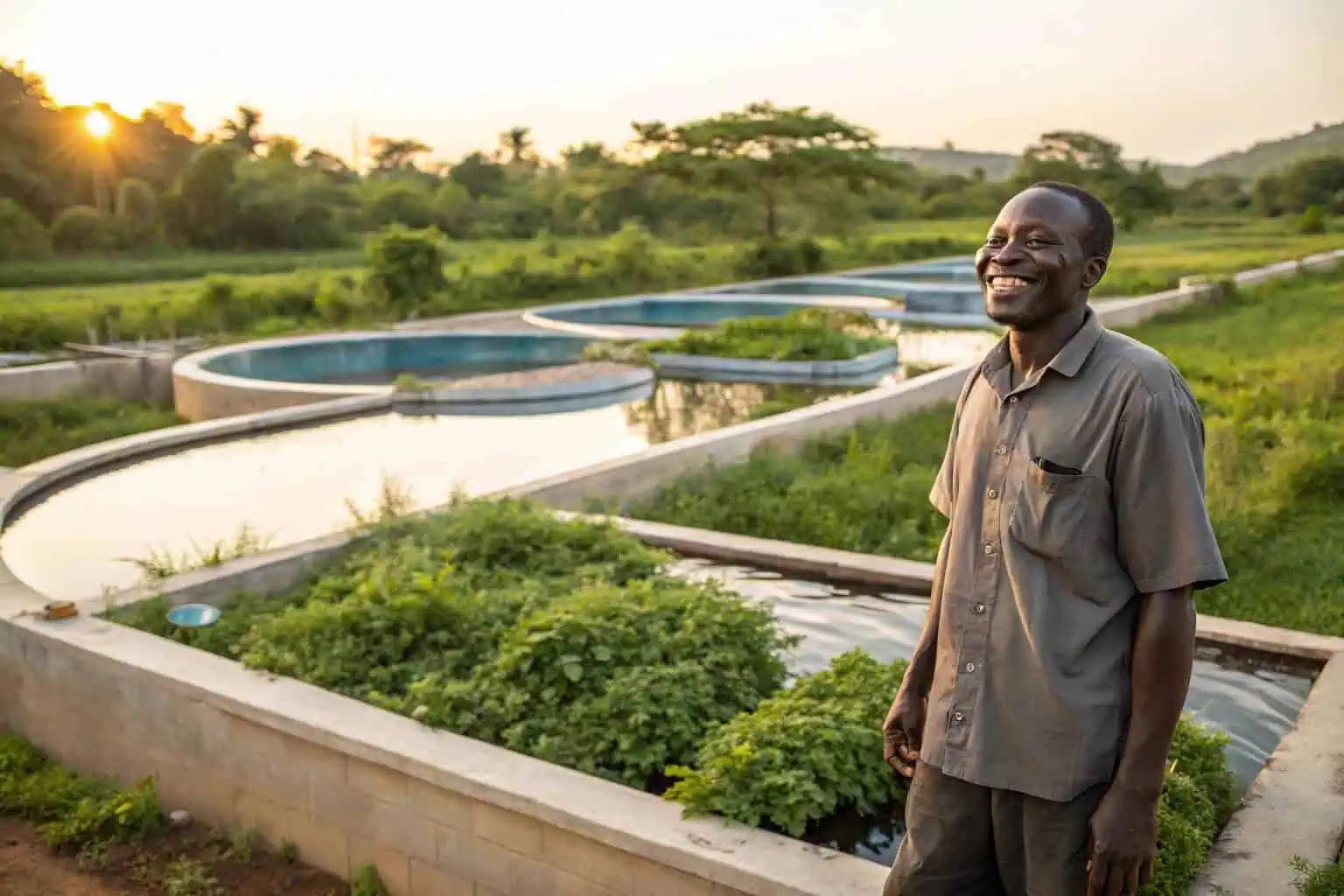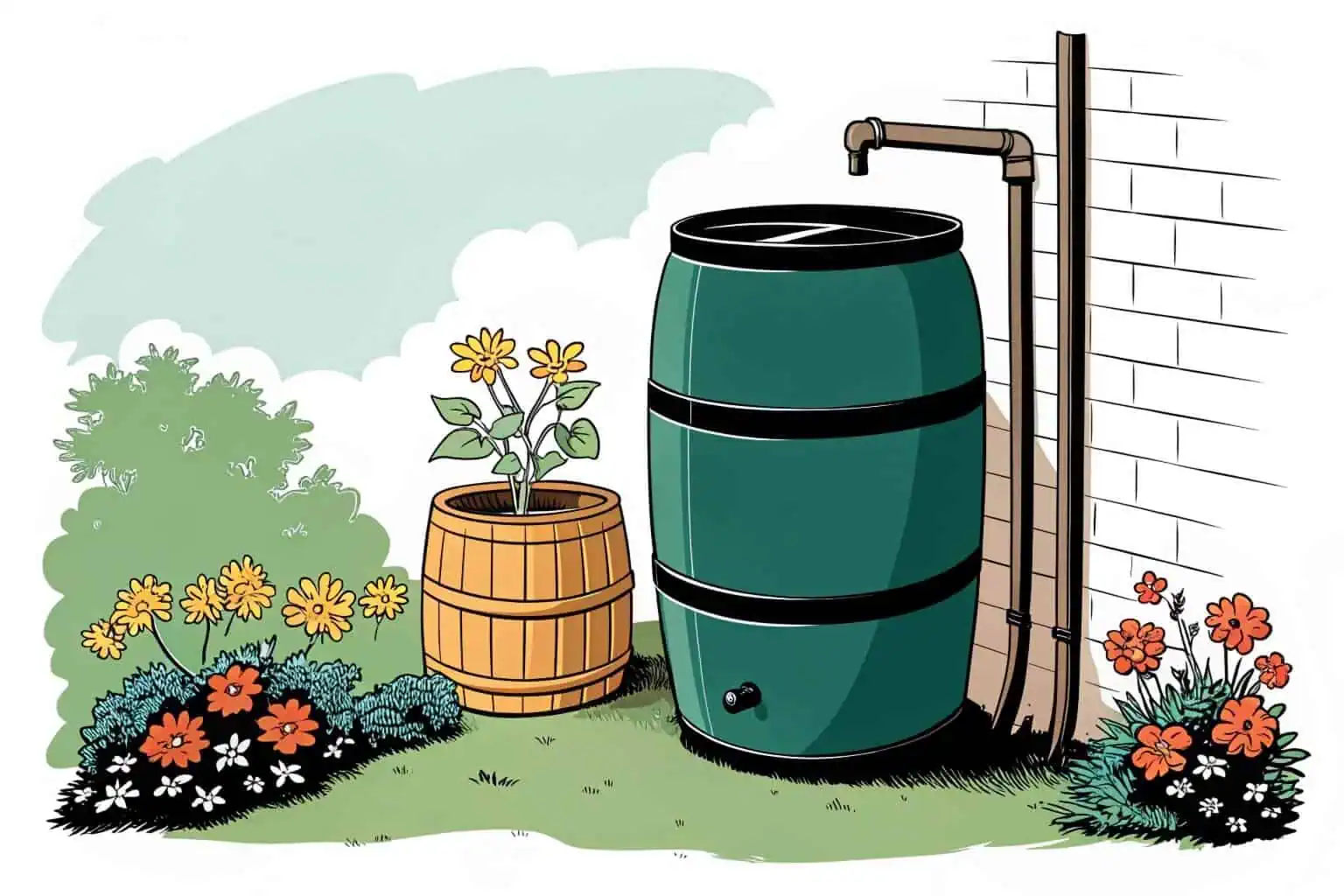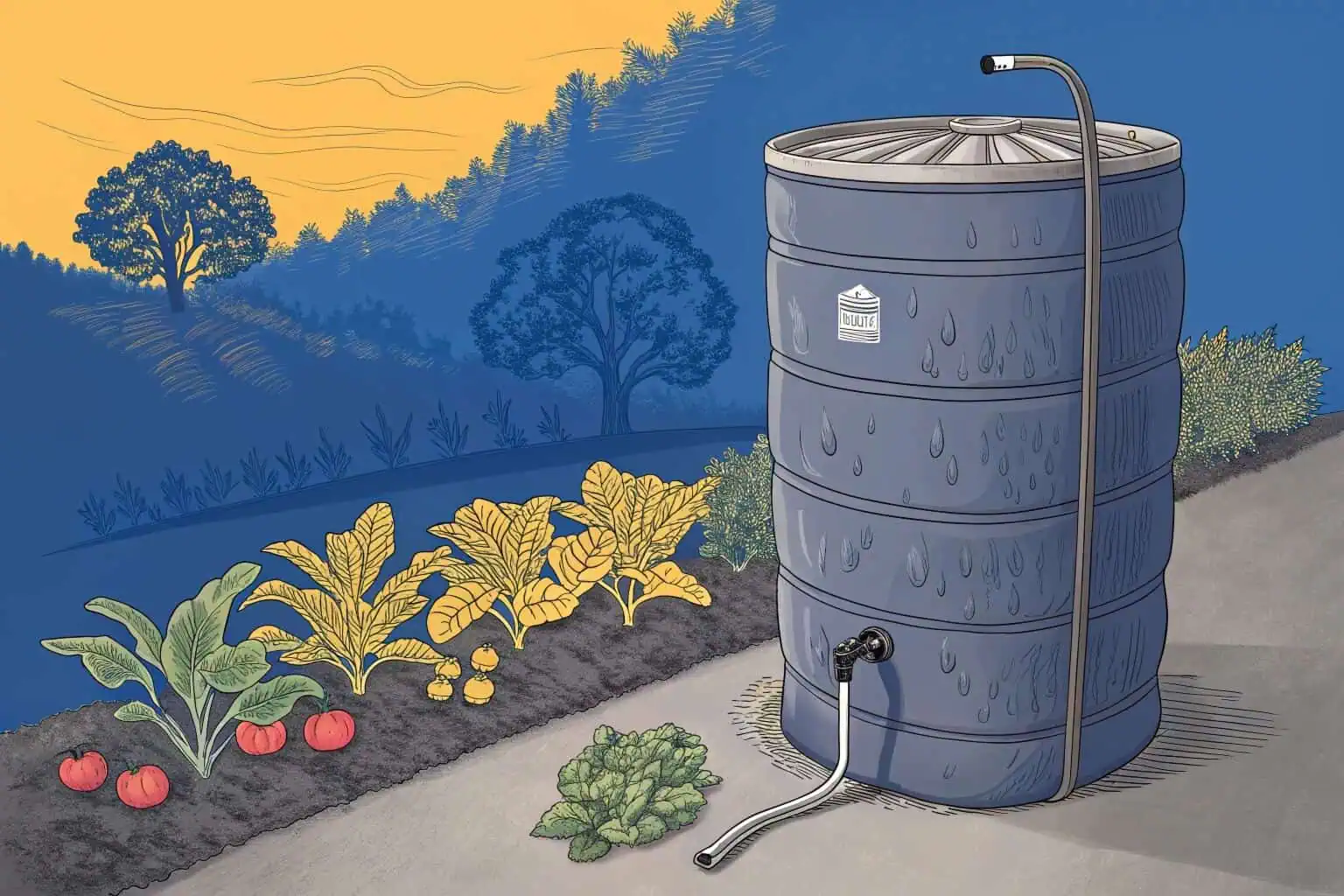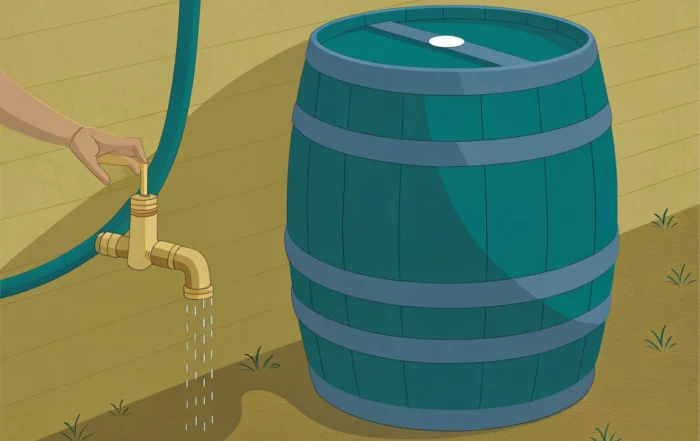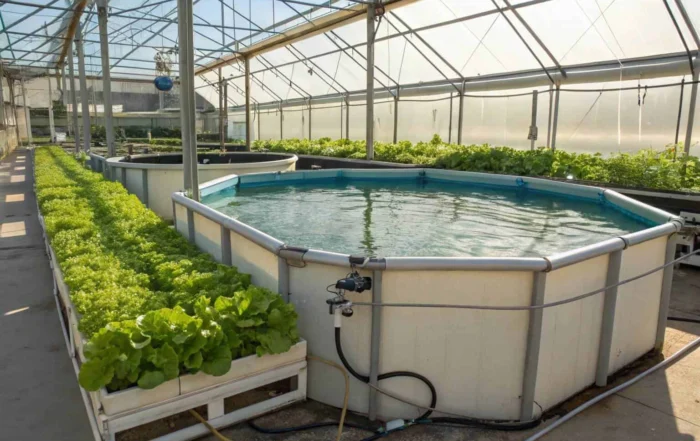Ghana loves fish, but supply struggles. Can local farming fill the gap and satisfy this growing hunger?
Fish is a vital protein source in Ghana, with strong and rising demand. Wild catches are insufficient, creating significant opportunities for local aquaculture to meet this need.
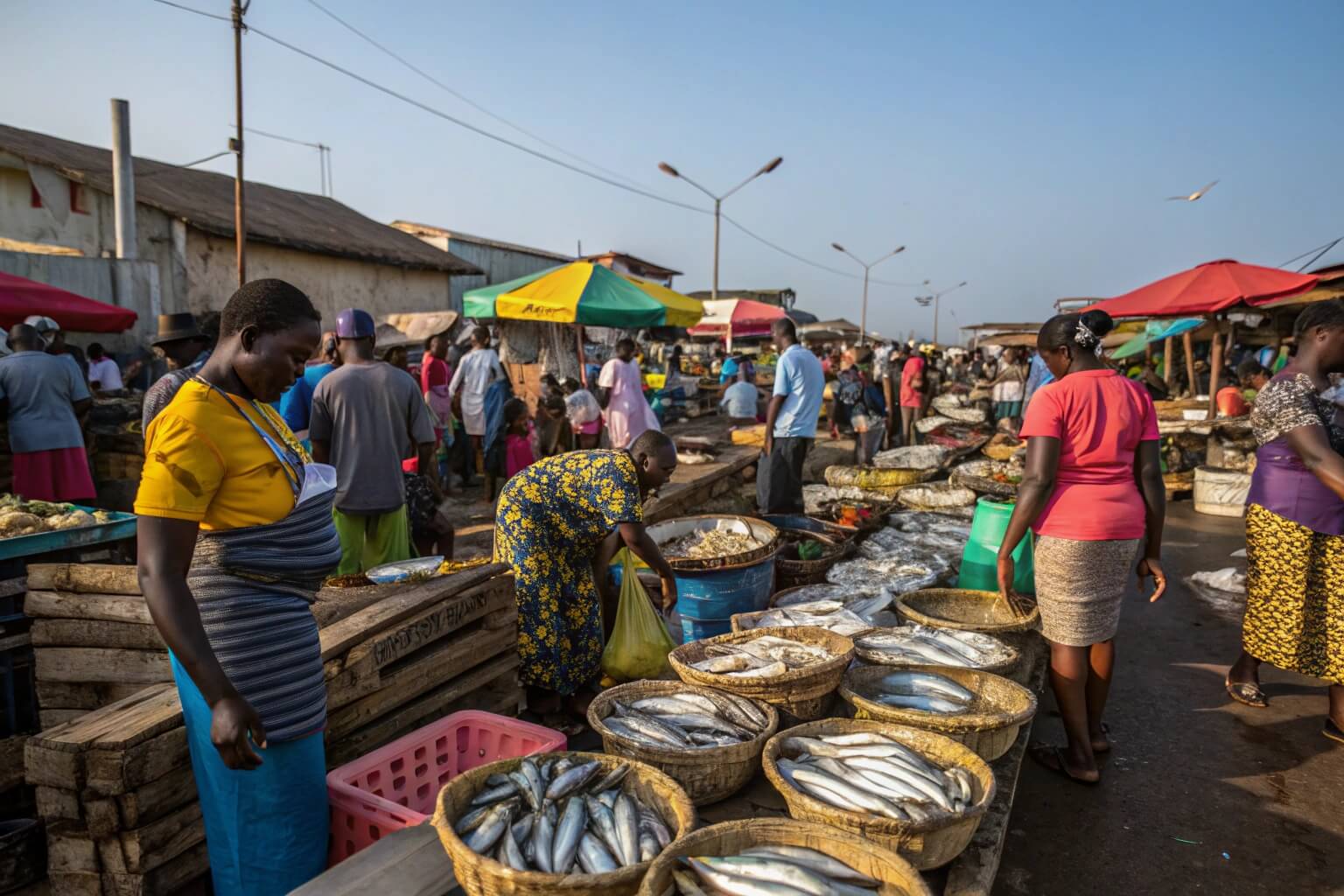
As someone deeply involved in Ghana’s aquaculture sector, I’ve seen firsthand the incredible appetite for fish. It’s more than just food; it’s a cornerstone of the nation’s diet and economy. This growing demand presents both challenges and exciting prospects, especially for innovative solutions like our Bancy collapsible fish ponds. I believe that understanding this demand is the first step for anyone looking into this market, whether you’re an investor, a farmer, or a policy maker. Let’s explore this further.
Is fish farming profitable in Ghana?
Thinking of fish farming in Ghana? Wondering if it’s a golden opportunity or a risky venture? Let’s find out.
Yes, fish farming in Ghana, particularly for species like tilapia and catfish, can be highly profitable. Government support, technological advancements, and strong market demand contribute to its financial viability.
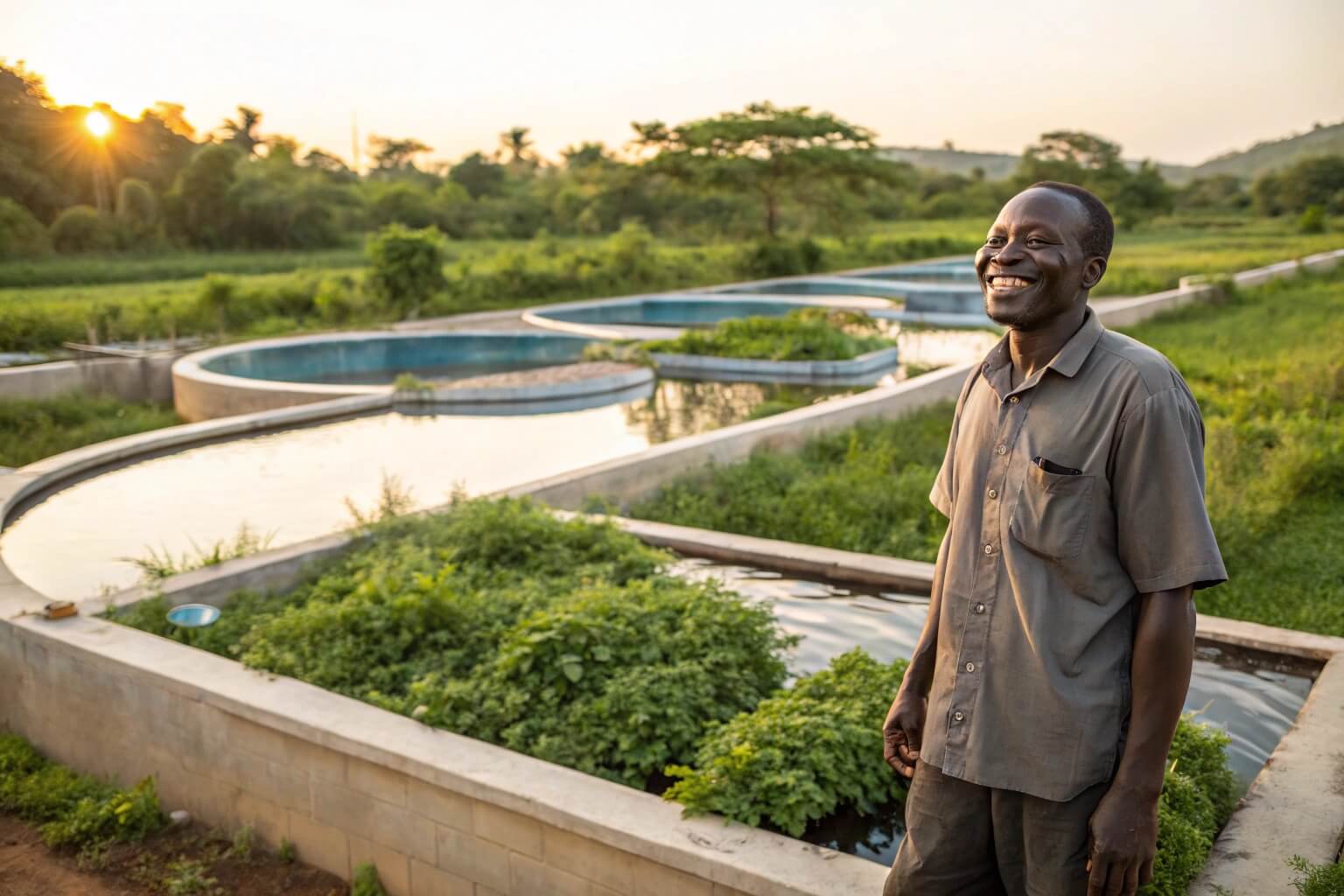
From my experience, the profitability of fish farming in Ghana1 hinges on several key factors. It’s not just about throwing fish into a pond; it’s a business that requires careful planning and execution. I’ve talked to many farmers, and the successful ones always emphasize the need for a solid plan.
Key Profitability Drivers in Ghanaian Fish Farming?
The main reason fish farming2 can be profitable here is the strong local demand. People in Ghana really enjoy fresh fish. With the fish caught from the sea not increasing, fish farming is becoming more important. Tilapia and catfish3 are very popular and sell for good prices. At Bancy, we’ve helped many farmers who have made good money by farming these types of fish. They tell me that choosing the right fish is a big part of their success.
What are the Operational Costs to Consider?
But, making a profit isn’t a sure thing if you don’t manage your costs well. Fish feed is usually the biggest cost. It can be more than half of all your expenses. Getting good quality young fish, managing water, and preventing diseases are also very important. This is where good equipment, like our Bancy collapsible fish ponds4, can help. They can lower the cost of setting up and make it easier to control the fish’s environment compared to old-style ponds. This is especially true for small and medium-sized farms I’ve visited.
How Does Government Support Impact Profitability?
The government in Ghana knows that fish farming is important. They offer help, like advice and sometimes help with money. These programs can make it easier to start and can make fish farming more profitable. I’ve personally seen these programs help many people start their own fish farms and grow them. It’s encouraging to see this support making a real difference.
| Factor | Impact on Profitability | My Insight/Bancy’s Role |
|---|---|---|
| Market Demand5 | High (Good for profit) | Ghanaians love fresh fish, so there’s always a market. |
| Species Choice | Tilapia & Catfish are popular (Good for profit) | We help farmers choose the best fish for their farm and market. |
| Feed Costs6 | Can be high (Bad for profit if not managed) | Finding good, affordable feed is key. We try to connect farmers with good suppliers. |
| Infrastructure | Need to invest at the start (Can be hard) | Our collapsible ponds are cheaper to start with, easy to grow, and last a long time. |
| Technical Know-how | Need to know how to farm fish (Can be hard for new farmers) | We give advice and help farmers find experts. |
| Government Support7 | Usually helpful, can lower costs (Good for profit) | Using government help can really increase profits. |
So, while there are challenges, fish farming in Ghana can make good money for people who plan well and use good methods. I truly believe in the potential here.
What is the most consumed fish in Ghana?
Curious about Ghana’s favorite fish? Is it from the sea or the farm? The answer might surprise you and show where the market opportunities are.
While various marine fish are popular, tilapia has become exceedingly consumed, especially from aquaculture. Its taste, affordability, and availability make it a top choice for many Ghanaians.
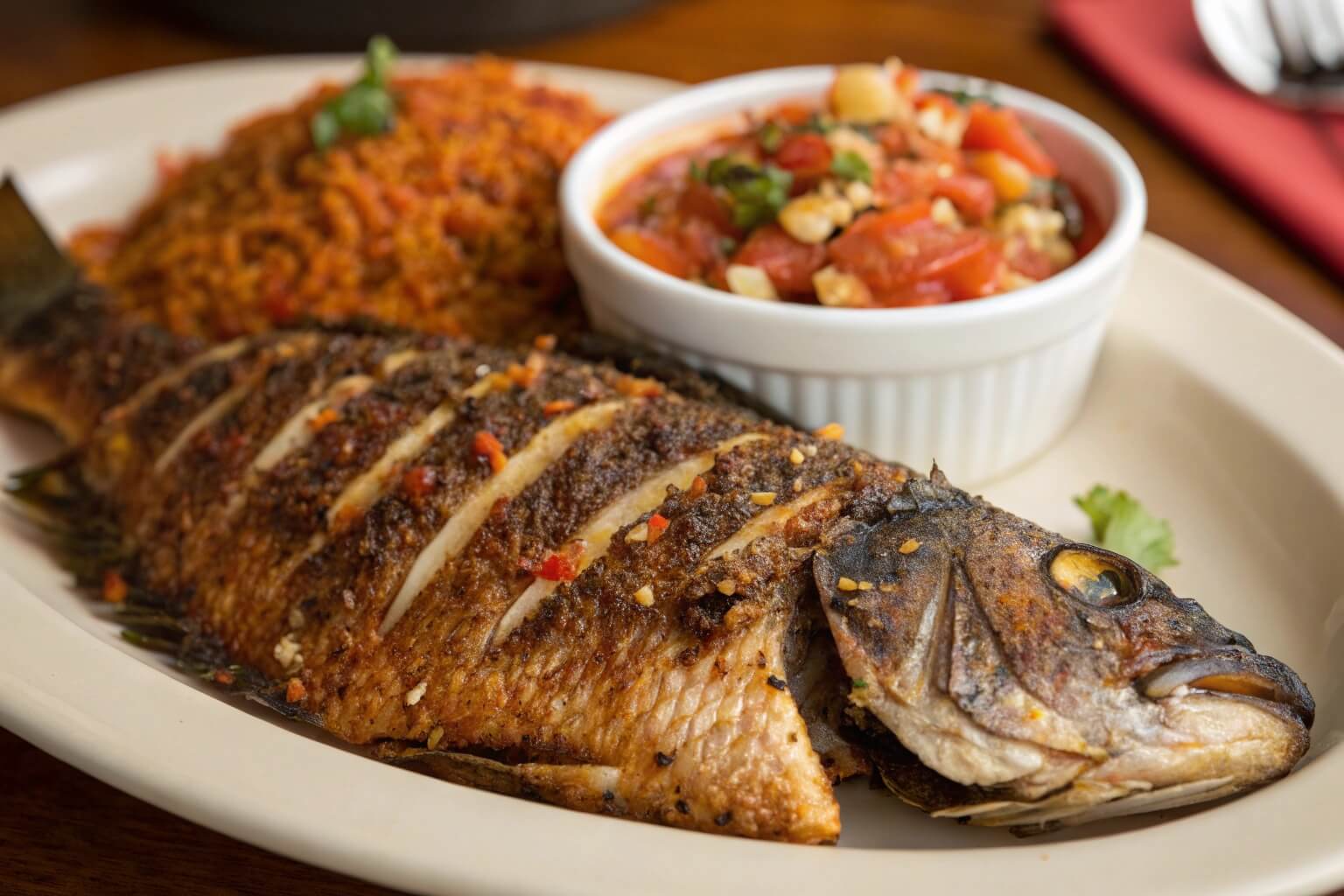
When I talk to people across Ghana, from busy city markets to quiet village homes, fish is always a big topic. It’s a main food, and everyone has a fish they like best. But which fish do people in Ghana eat the most?
Is it a Single Species or a Variety?
For a long time, fish from the sea like mackerel8 (often called "salmon" here), herrings9, and anchovies10 were eaten a lot. This was because they were easy to get from the Atlantic Ocean. These fish are often smoked, dried, or used in stews and soups. I remember these being very common when I was younger. But things are changing now.
How has Aquaculture Influenced Consumption?
Fish farming has made tilapia very popular. I’ve seen tilapia go from being a less common farmed fish to a fish everyone knows. People like its mild taste, its firm meat, and that you can cook it in many ways. Also, farmed tilapia means there’s always fresh fish11 available. This is a big plus because fish from the sea can be hard to find at certain times of the year. Many of our Bancy customers who use our collapsible fish ponds are farming tilapia because so many people want to buy it. They can sell fresh tilapia all year, which is great for the market.
What About Catfish and Other Species?
Catfish, especially smoked catfish12, is also an important fish in Ghanaian food. People in some areas and for some special dishes really like it. Catfish farming is also doing very well. While people eat other types of sea and freshwater fish, tilapia is now very common because of good farming. This shows how important fish farming is for feeding the country. I’ve noticed more and more catfish farms starting up, often using modern systems.
| Fish Type | Main Source(s) | How It’s Cooked | My Observation/Bancy’s Connection |
|---|---|---|---|
| Tilapia | Fish farms, some from wild | Grilled, fried, in stew, soup | High demand, steady supply from farms. Our ponds are perfect for farming tilapia. |
| Mackerel (“Salmon”) | Sea (Imported/Local) | Smoked, grilled, in stew | A traditional favorite, but sometimes hard to find. |
| Herrings | Sea | Smoked, dried, fried | Important for local meals, often cheaper. |
| Anchovies | Sea | Dried, powdered, in stews | Used for flavor in many dishes. |
| Catfish | Fish farms, some from wild | Smoked, in soup, in stew | Getting more popular in fish farming, liked for its taste, especially when smoked. |
So, while sea fish are still important, tilapia, mostly from fish farms, is probably the fish eaten most regularly and is easiest to find fresh in Ghana today. This really shows how fish farming is helping to feed the nation. I feel proud that Bancy is part of this positive change.
Does Ghana import fish?
Ghana has a long coast, yet it buys fish from other countries. Why does this happen, and what does it mean for local fish farmers?
Yes, despite its own significant fishing industry, Ghana imports a substantial amount of fish annually to meet its total domestic demand, which outstrips local supply from capture fisheries and aquaculture.
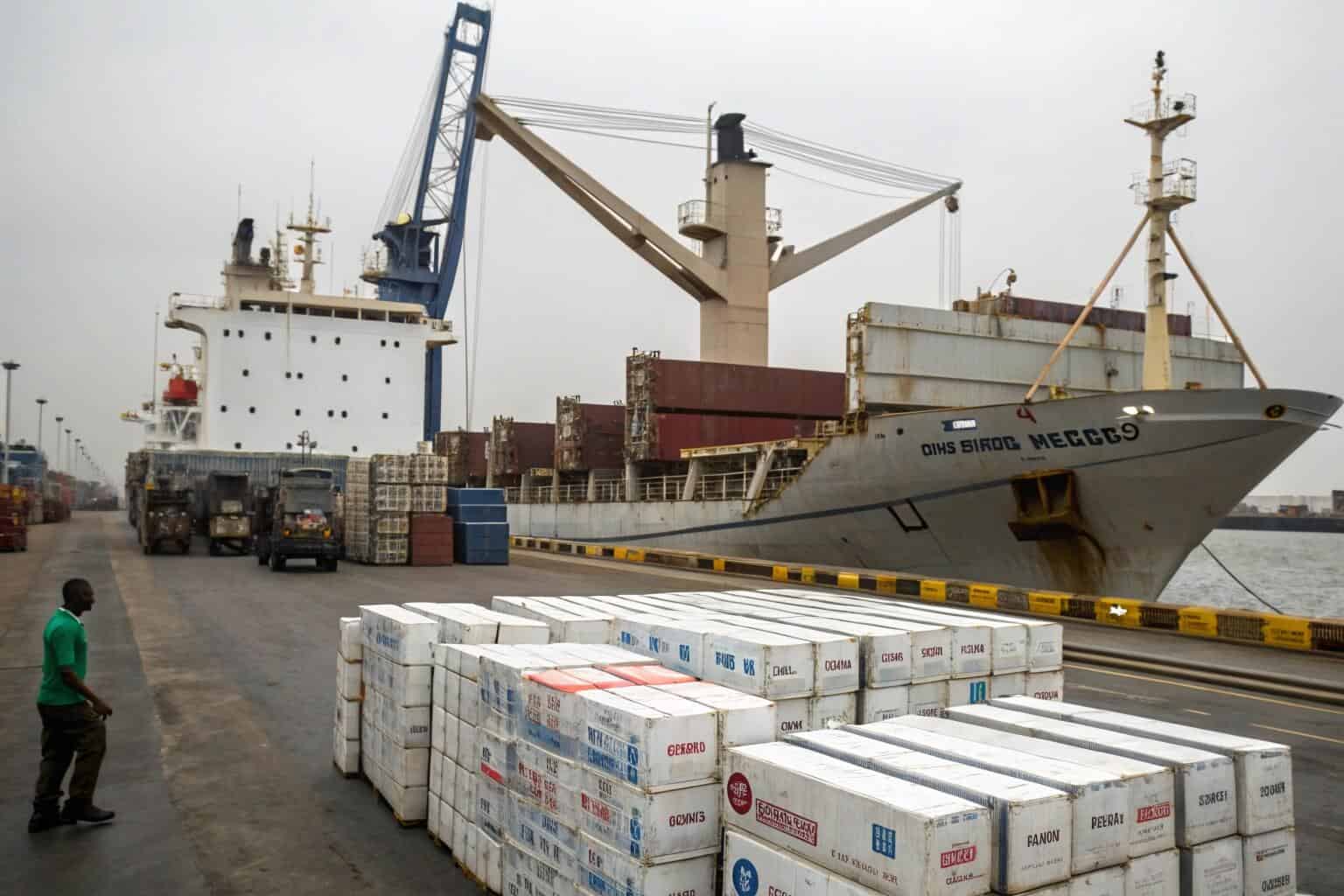
It often surprises people when I tell them that Ghana, a country known for fishing and its Atlantic coast, actually imports a lot of fish. It doesn’t seem to make sense at first, does it? But if you look at the facts and what’s happening, it becomes clear.
Why the Need for Imports Despite Local Resources?
The main reason is that people in Ghana eat much more fish than the country produces locally. As we’ve talked about, the demand for fish is very high. The local fishermen13 who catch fish from the sea are working hard, but they face problems. These include too much fishing, illegal fishing, and changes in the climate. These problems mean they are catching the same amount or even less of some types of fish. Fish farming is growing fast, but it’s still not big enough to supply all the fish the country needs. I’ve seen the government and private companies, including many of our Bancy customers, trying hard to increase local fish farming. But it takes time to produce enough fish for everyone.
What Types of Fish are Imported and From Where?
Ghana imports different kinds of fish, both frozen and in cans. Common imported fish14 include mackerel, horse mackerel, sardines, and hake. These fish come from many countries, like Mauritania, Senegal, countries in Europe, and China. These imported fish often fill certain needs in the market. Sometimes they are cheaper, or they are types of fish that are not easy to get from local sources in large amounts. I often see these imported fish in the markets alongside locally produced ones.
What is the Impact on the Local Industry?
Importing fish is both a challenge and an opportunity for Ghana. On one side, local fish producers have to compete with imported fish, which can sometimes be cheaper. On the other side, it shows there’s a big gap in the market that local fish farming can try to fill. This is a big reason why companies like Bancy are working here. Our fish farming systems, like the collapsible fish ponds, are made to help Ghanaian farmers produce more fish. This can help Ghana rely less on imported fish and improve food security15. It’s a goal I am passionate about.
| Aspect of Fish Imports | Details | What it Means for Bancy & Local Fish Farming |
|---|---|---|
| Amount | A lot, often hundreds of thousands of tons each year. | Shows there’s a big unmet need that local farms can supply. |
| Types | Frozen sea fish (mackerel, horse mackerel), canned fish. | Local fish farms can offer fresh, high-quality fish like tilapia and catfish instead. |
| Reasons for Import | People eat more fish than local supply; sea catches are down. | Makes it clear that more local fish farming is needed. Our products help this growth. |
| Economic Impact | Uses up foreign money; creates competition for local fishers/farmers. | Successful local fish farming16 can save foreign money and create local jobs. |
| Opportunity | Replace imports by producing more local, fresh fish. | This is a strong reason to invest in local fish farming using modern, efficient systems. |
So, the fact that Ghana imports fish clearly shows there’s huge room for growth in its own fish farming sector. Every fish farmed locally helps reduce the need for imports. I believe this is a very important goal for the country.
Which country has the highest demand for fish?
Globally, who are the biggest fish eaters? Understanding worldwide trends can give us clues about market forces and even future export chances.
China leads globally in overall fish consumption due to its large population and strong fishing industry. However, per capita consumption is highest in island nations like Maldives and Iceland.

While our main work at Bancy is focused on the Ghanaian market and helping its fish farming industry grow, it’s sometimes good to look at the bigger picture of fish demand around the world. Knowing these wider trends can give us a better understanding and even show us long-term possibilities.
Who Consumes the Most Fish Overall?
When we talk about the total amount of fish eaten, China is the world’s biggest consumer. This is mainly because it has a very large population and is also a major fish producer, both from fishing in the sea and from fish farming. Their own market for fish is huge. I’ve read reports that show China eats a very large part of all the fish consumed17 in the world. It’s quite an impressive scale.
What About Per Capita Consumption?
But, if we look at who eats the most fish per person (that’s called per capita consumption), the story is different. Island countries and countries with strong sea traditions often eat the most fish per person. Countries like the Maldives, Iceland, Japan, Portugal, and Norway usually have very high rates of fish eating18 for each person. Fish is a very important part of their food and often their main source of protein. For example, I remember reading that in the Maldives, each person might eat over 100 kg of fish in a year. That’s a lot of fish!
How Does Ghana Compare in Per Capita Consumption?
Ghana also has a fairly high rate of eating fish per person, especially when you compare it to many other African countries. It’s much higher than the average for Africa and even higher than the world average. This just confirms what we already know: fish is extremely important in the Ghanaian diet. This strong local demand is why we at Bancy are so sure about the future of fish farming in Ghana. While selling fish to other countries might be a long-term idea for some big fish farms, meeting the local need for fish is the most important opportunity right now. I see this every day in the markets and in the communities we work with.
| Consumption Metric | Leading Countries/Regions | Key Factors | How it Relates to Ghana/Bancy |
|---|---|---|---|
| Total Consumption19 | China, Indonesia, India | Large populations, big domestic production (fish farming & sea fishing) | Shows how big fish markets can get. Ghana’s market is smaller but has similar reasons for growth. |
| Per Capita Consumption20 | Maldives, Iceland, Japan, Portugal, Kiribati, Seychelles | Strong fishing traditions, being an island or coastal country, food choices | Ghana’s per person fish eating is high for Africa. This shows a strong cultural liking and need for fish. |
| Regional Trends21 | Asia (highest total & per person), Europe, North America | Economic growth, changes in diet, health awareness | The world trend of eating more fish (because it’s healthy) also helps markets like Ghana grow. |
Understanding these world patterns helps us see the local situation in Ghana even better. The high demand for fish here is not unusual. It’s part of a global picture where fish is vital for food and health. Our work at Bancy, by providing tools like collapsible fish ponds, directly helps meet this important local need. It’s satisfying to contribute to this.
Conclusion
Ghana’s appetite for fish is immense and growing. Local fish farming, supported by innovations like Bancy’s solutions, is key to meeting this demand, boosting profitability, and ensuring food security for the nation.
- Understanding these factors can help you optimize your fish farming business for better returns. ↩
- Explore this link to understand how fish farming can be a lucrative venture in Ghana, driven by local demand and sustainability. ↩
- Discover why Tilapia and catfish are favored in aquaculture, including their market value and consumer preferences. ↩
- Discover how Bancy collapsible fish ponds can enhance your fish farming operations and reduce setup costs. This link provides valuable information. ↩
- Understanding market demand is crucial for maximizing profits in fish farming. Explore this link to learn more about its significance. ↩
- Feed costs can significantly impact profitability. Discover strategies to manage these costs effectively by exploring this resource. ↩
- Government support can enhance profitability in fish farming. Learn how to leverage these resources for better outcomes. ↩
- Discover the numerous health benefits of mackerel, a nutritious fish rich in omega-3 fatty acids, which can enhance your diet. ↩
- Explore various cooking methods for herrings, a versatile fish that can be prepared in numerous delicious ways. ↩
- Learn about the unique culinary uses of anchovies, a flavorful ingredient that can elevate your dishes. ↩
- Discover how fish farming techniques guarantee a consistent supply of fresh fish, making it a reliable source for consumers. ↩
- Explore the unique flavors and health benefits of smoked catfish, a staple in Ghanaian dishes, and its cultural significance. ↩
- Learn about the struggles local fishermen encounter and the impact on fish supply in Ghana. ↩
- Exploring this resource will provide insights into the economic and nutritional advantages of imported fish in Ghana’s market. ↩
- Understanding this connection can highlight the importance of local fish farming in ensuring food security for the nation. ↩
- Exploring this resource will provide insights into how local fish farming can boost Ghana’s economy and food security. ↩
- Explore statistics on China’s fish consumption and its implications for global fisheries. ↩
- Discovering countries with high fish consumption can highlight culinary traditions and health benefits associated with fish. ↩
- Discover insights into the largest fish markets globally, which can provide valuable lessons for Ghana’s fish industry. ↩
- Explore this link to understand how different countries prioritize fish in their diets, which can inform Ghana’s market strategies. ↩
- Understanding global fish consumption trends can help Ghana align its market strategies with successful regions. ↩

